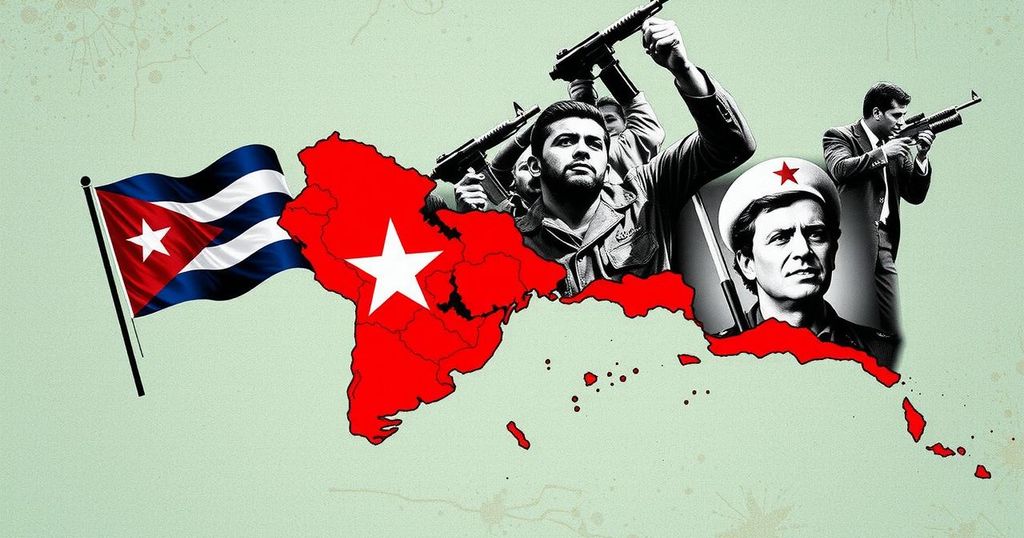The Cuban Revolution led by Fidel Castro and Che Guevara marked a pivotal moment in Latin American history, inspiring revolutionary movements across the continent. Che’s vision emphasized the need for deep social transformation to confront imperialism, arguing that both Latin American and North American peoples should unite in their struggles. His final actions and writings continue to influence contemporary discussions about social justice and economic independence.
The Cuban Revolution, which culminated in the overthrow of Fulgencio Batista’s regime on January 1, 1959, served as a catalyst for revolutionary movements across Latin America. Che Guevara, a prominent leader of this uprising, underscored the need for profound revolutionary transformation in the region. He believed that this transformation was crucial not only for Latin Americans but also for the North American populace, who must confront and challenge the imperialist structures that oppress them.
Guevara articulated a vision in which the struggles of the North American people could align with those in Latin America, advocating for a unified front against imperialist policies. He warned that without such a transformation, Latin America would remain impoverished and reliant upon Northern powers, exacerbating global inequalities. Guevara’s commitment to revolutionary ideals was unwavering, as reflected in his final days during the Bolivian campaign, where he continued to fight despite his injuries and eventual capture.
The historical legacy of the Cuban Revolution and Guevara’s endeavors left an indelible mark on the political landscape of Latin America. His writings and actions inspired future uprisings, reflecting a broader quest for social justice and economic independence throughout the continent. The repercussions of this revolutionary fervor are still evident today, as countries continue to grapple with the structural inequalities cemented by imperialism and local elites.
The Cuban Revolution represented a significant turning point in Latin American politics, igniting the interest of revolutionary movements throughout the region. Led by figures like Fidel Castro and Che Guevara, this uprising not only targeted the regime of Batista but also aimed to overhaul the socio-economic structures that contributed to widespread inequality and underdevelopment. Che Guevara’s theories on guerrilla warfare and his call for a united revolutionary front captured the aspirations of many who sought to challenge imperialist oppression, particularly from the United States, which exerted undue influence in Latin America.
In summary, the Cuban Revolution profoundly influenced revolutionary thought and action across Latin America. Che Guevara’s insights into the necessity of radical transformation resonate strongly, as his legacy serves to inspire continued struggles against imperialism and inequality. The connection he forged between the aspirations of diverse peoples in the hemisphere remains relevant, as ongoing campaigns for social justice reflect the enduring impact of Guevara’s vision and the revolutionary spirit he championed.
Original Source: www.dailymirror.lk






